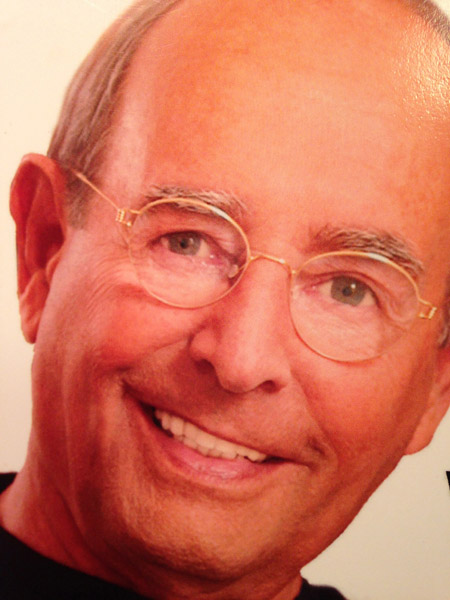Need a refresher or a tap on the shoulder as what principles makes a leader great?
This leadership blogpost is dedicated to my new friend who is an up and coming Amway Representative who is going through some tough times, but is ready to run. So it is appropriate we gather some wisdom from Rich DeVos, the co-founder of Amway, one of the great pioneers of the MLM industry. In the business biographical work “How to Be Like Rich DeVos” (2004) by Pat Williams, are listed 7 key traits that are in a leader in any capacity in any industry.
So let’s get on with the review…
HOW TO BE A LEADER LIKE RICH DEVOS
Selected passages from the book, “How to Be Like Rich DeVos” by Pat Williams
Principle No. 1: vision. Vision is the ability to imagine a bright and optimistic future. All great leaders have the ability to envision a better tomorrow, then energize and motivate to turn that dream into a reality.
Leadership principle no. 2: communication skills. A great leader is also a great communicator. What good does it do to have a shining, optimistic vision of the future if you cannot communicate that vision to the people around you? A visionary leader must be able to articulate that vision promote that vision and sell that vision to his or her employees, partners and teammates. “My vision” must become “our vision,” a shared vision, so that everyone in the organization can move in formation toward a single goal.
Leadership principle no. 3: people skills. J. Paul Getty, the great oil industrialist and philanthropist, once said, “It doesn’t make much difference how much knowledge and experience you possess. If you are unable to achieve results through people, you are worthless as a leader.”
Leadership principle no. 4: good character. A leader must have good character in order to inspire other people with his vision for the future. As leadership guru John Maxwell observed, “People buy into the leader before they buy into the leaders vision.”
I once heard General Norman Schwarzkopf speak at an event in Orlando, and he said something that has stuck with me ever since: “People choose their leaders based on character. I judge character not by how men deal with their superiors, but by how they deal with their subordinates. That’s how you find out what the character of a man truly is.”
Leadership principle no. 5: competence. No matter what your leadership arena may be – an organization corporation, military unit, church or sports team. The people around you will only follow your leadership if they have complete confidence in your competence to lead them. Notice that the first seven letters of the word “competence” are C-O-M-P-E-T-E. The people you lead need to know that you are a competent and competitive leader. They need to believe that you will fight hard to help them be winners. They need to see that you have the wisdom, skill and experience to shape them into a competent, competitive team.
Leadership principle no. 6: boldness. If a leader isn’t bold, he isn’t a leader. A bold leader takes risks and encourages risk taking throughout the organization. No football team ever got to the Super Bowl by punting on every fourth-and-one situation. In military campaigns, victory usually goes to the side whose leaders devise bold, imaginative battle plans. And in the business world, the top corporations are usually those led by bold, innovative executives.
Leadership principle no. 7: a servant’s heart. Shortly after Rich’s heart-transplant surgery we had a meeting of the RDV Sports organization, the parent company of the Orlando Magic. The meeting was held in Grand Rapids. Rich who was in London recovering from his surgery, joined the meeting by satellite TV. The first item on the agenda was the Magic Fan Attic team store. It had become clear that the store needed to be downsized which meant the elimination of sixteen jobs.
We debated the issue for about twenty minutes. Rich remained silent throughout the debate. Finally, he spoke up. “This funeral has gone on long enough. It’s time for the burial.” It was Rich’s metaphoric way of saying that it was time to end the discussion and make a decision. Then he asked, “What happens to the sixteen employees who are going to be downsized?”
Several suggestions were offered.
“Whatever it takes,” Rich said, “I want them taken care of. Relocate them in the organization if you can. If not, make sure they get severance packages and help in finding new jobs. Just make sure they are taken care of.”
Rich didn’t personally know any of the people who worked in the Magic Fan Attic, but that didn’t matter. He cared about his people, even those he had never met. And he considered himself the servant of his people—not their boss.
…
If you’ve received some value from this, please LIKE SHARE COMMENT
…
ADMIN
If you’d like to send me and email, please do at: challenyee@challenyee.com
If you are curious about “How to be like Rich DeVos”, click here
FYI, I’m going through a transition period and I’ve had to decrease the frequency of my blogposts, Currently, I’m shooting for three per week, instead of 5. So I’ll see how this goes. (as of 19 May 2014).
I’ll see you… on the next page


